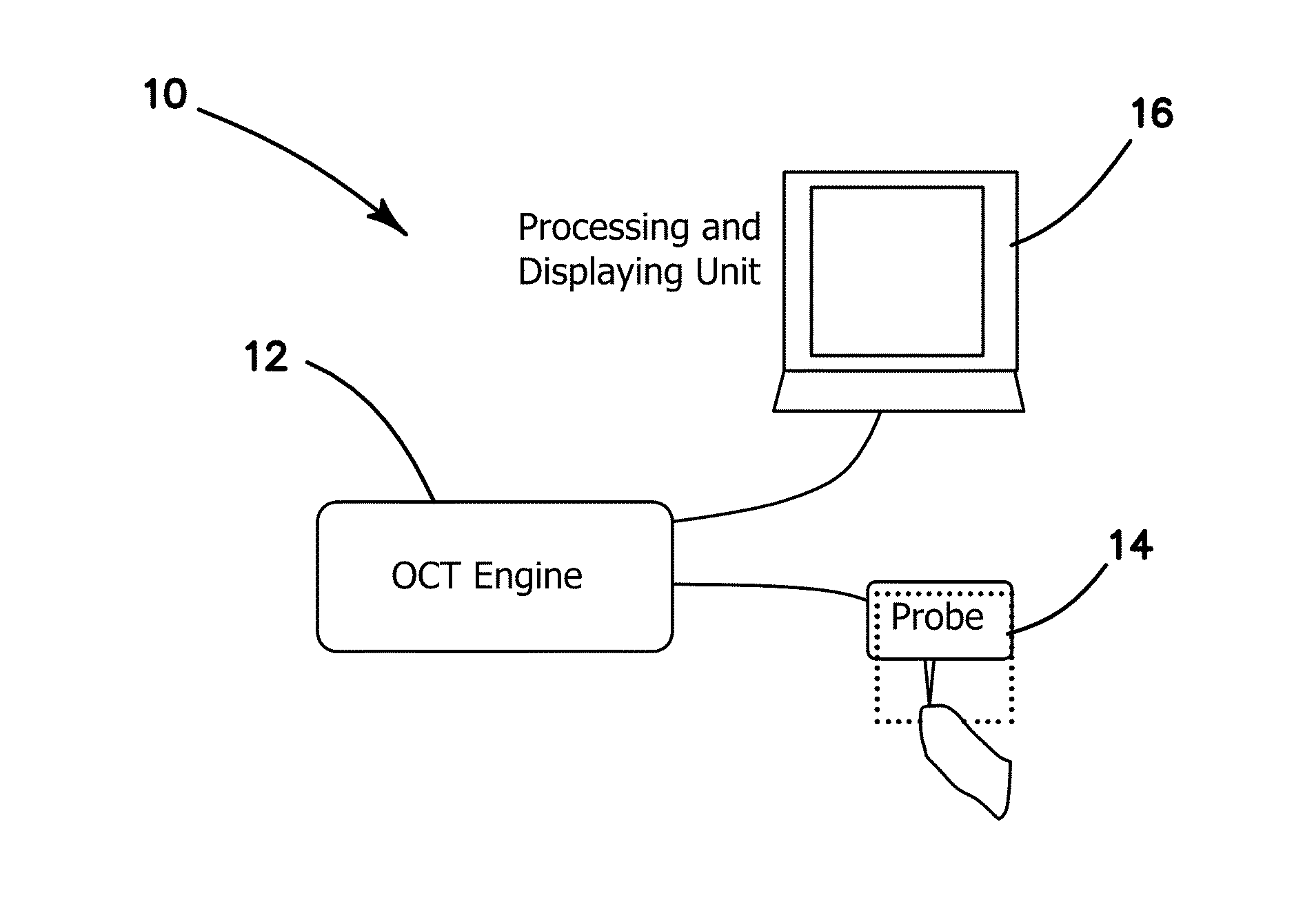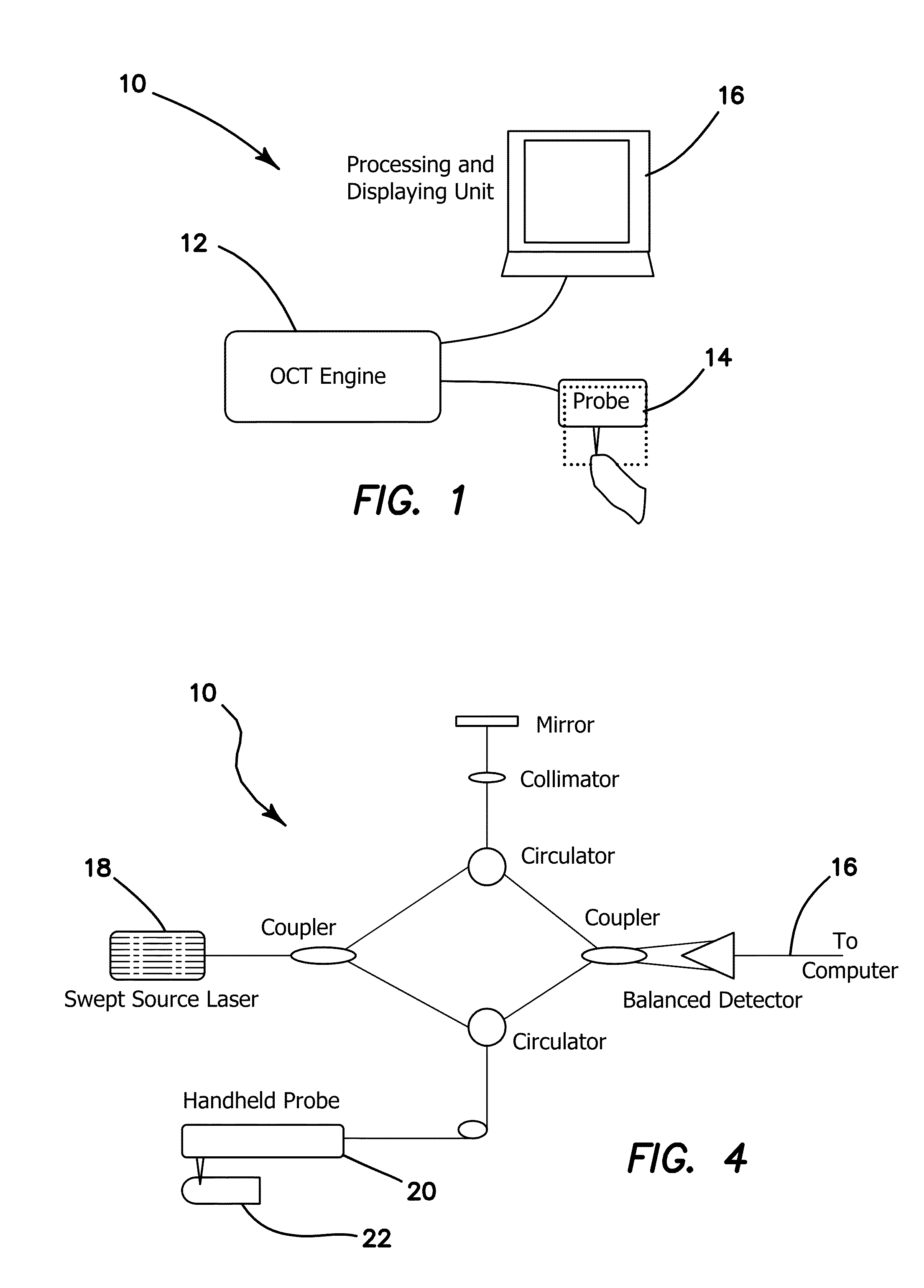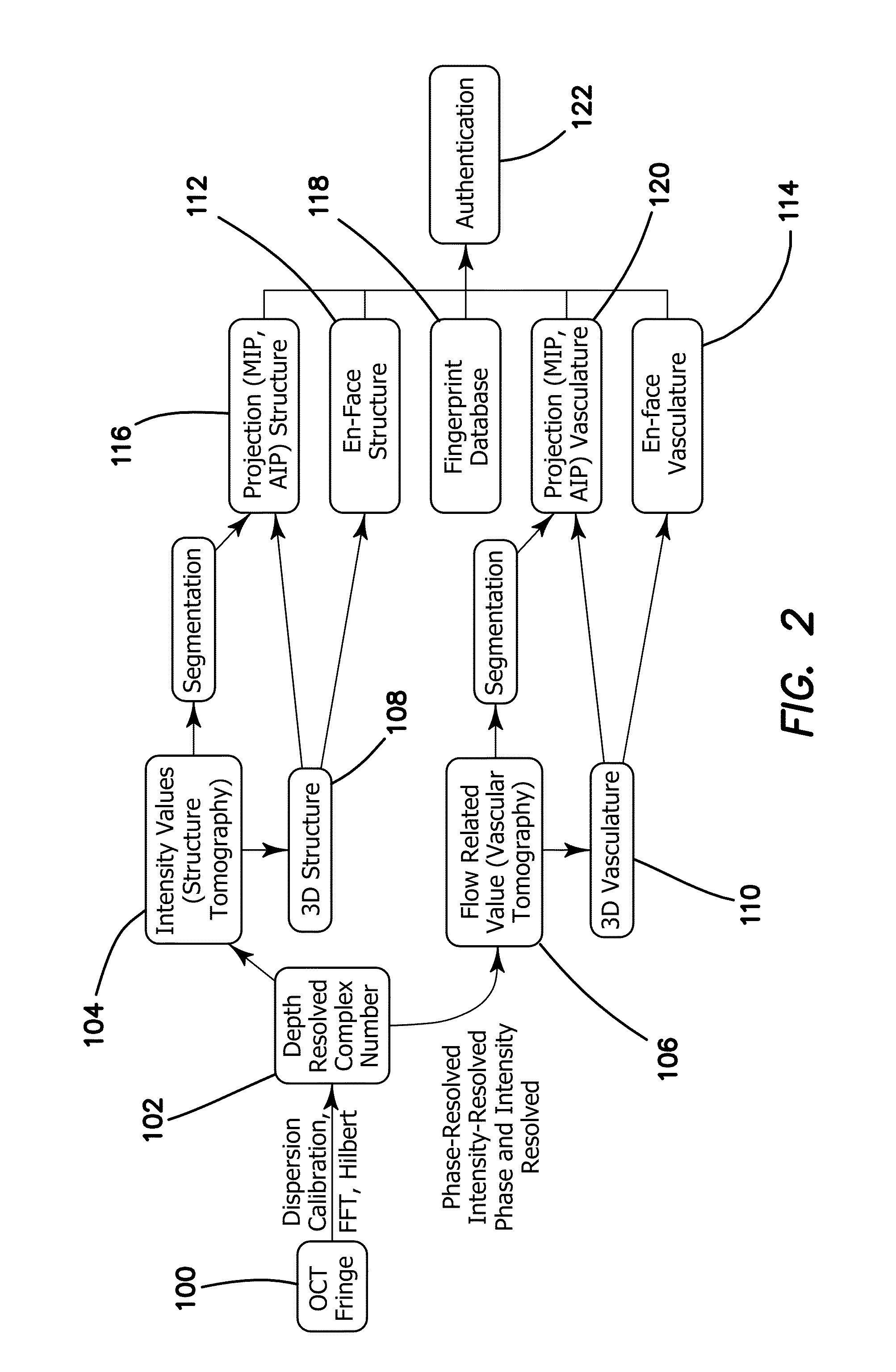Apparatus and Method for Capturing a Vital Vascular Fingerprint
a technology of vital vascular blood and fingerprint, which is applied in the field of in vivo imaging of human vasculature fingerprint, can solve the problem that the method used cannot be used for a living human, and achieve the effects of enhancing security of an authentication system, efficient imaging, and accurate identification of the person
- Summary
- Abstract
- Description
- Claims
- Application Information
AI Technical Summary
Benefits of technology
Problems solved by technology
Method used
Image
Examples
Embodiment Construction
[0047]Using fingerprints as a method to identify individuals has been accepted in forensics since the nineteenth century and fingerprinting has become one of the most widely used biometric characteristics. The fingerprint database is well established in most countries. Most of the modern fingerprint recognition systems are based on the print pattern of finger surface and are not robust against spoof attaching and there may be problems when there are scars or cuts on fingers.
[0048]Optical coherence tomography (OCT) is a noncontact imaging technique which can capture high resolution 3D images from within highly scattering biological tissues. There has been great interest to use OCT for fingerprint recognition and structures below the finger surface can be imaged with OCT. The human skin layer includes the epidermis, dermis, and hypodermis. The epidermis is the outermost layer of skin. The epidermis layer is free from any blood vessel. The layer beneath the epidermis is the dermis whic...
PUM
 Login to View More
Login to View More Abstract
Description
Claims
Application Information
 Login to View More
Login to View More - R&D
- Intellectual Property
- Life Sciences
- Materials
- Tech Scout
- Unparalleled Data Quality
- Higher Quality Content
- 60% Fewer Hallucinations
Browse by: Latest US Patents, China's latest patents, Technical Efficacy Thesaurus, Application Domain, Technology Topic, Popular Technical Reports.
© 2025 PatSnap. All rights reserved.Legal|Privacy policy|Modern Slavery Act Transparency Statement|Sitemap|About US| Contact US: help@patsnap.com



